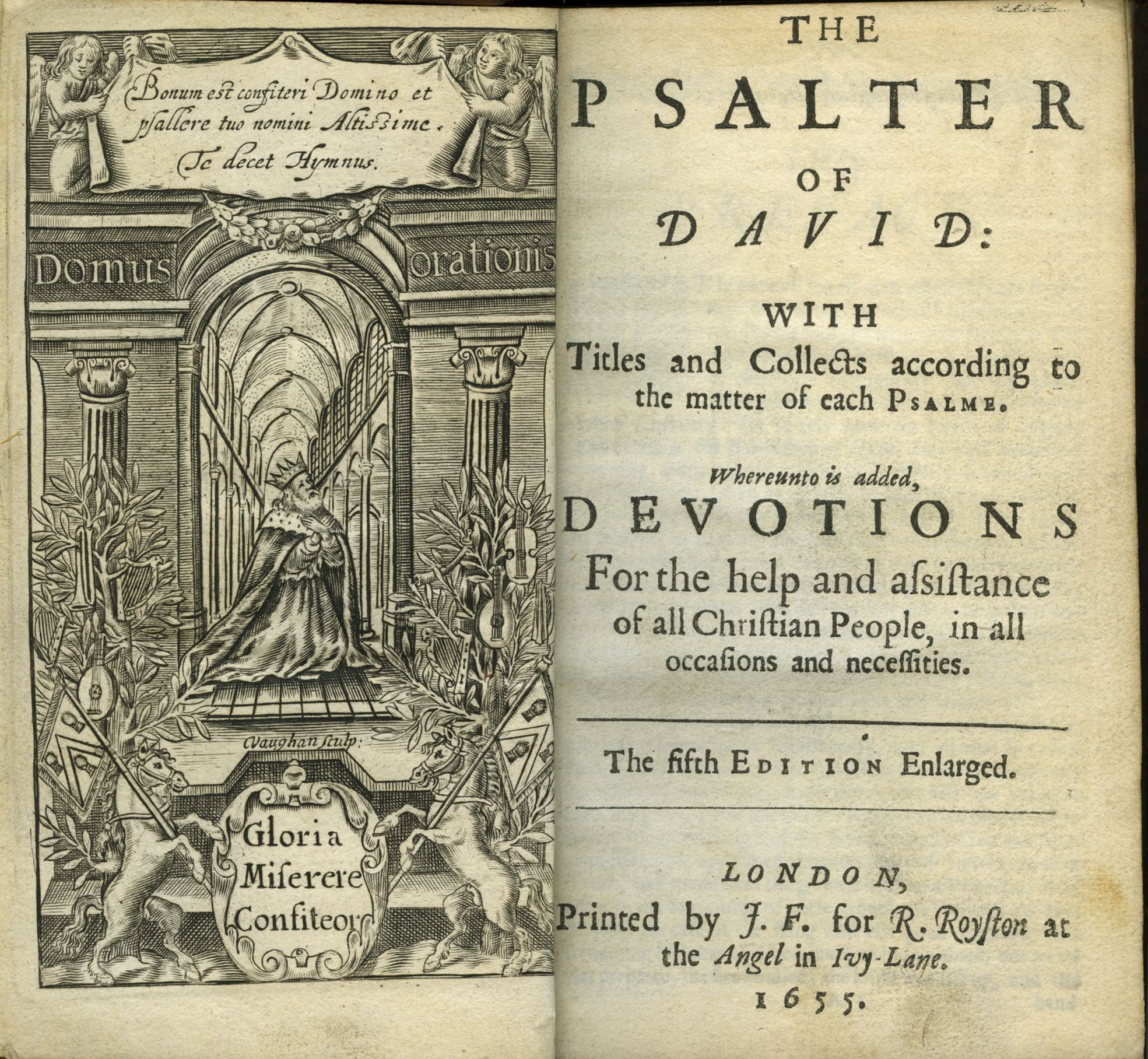
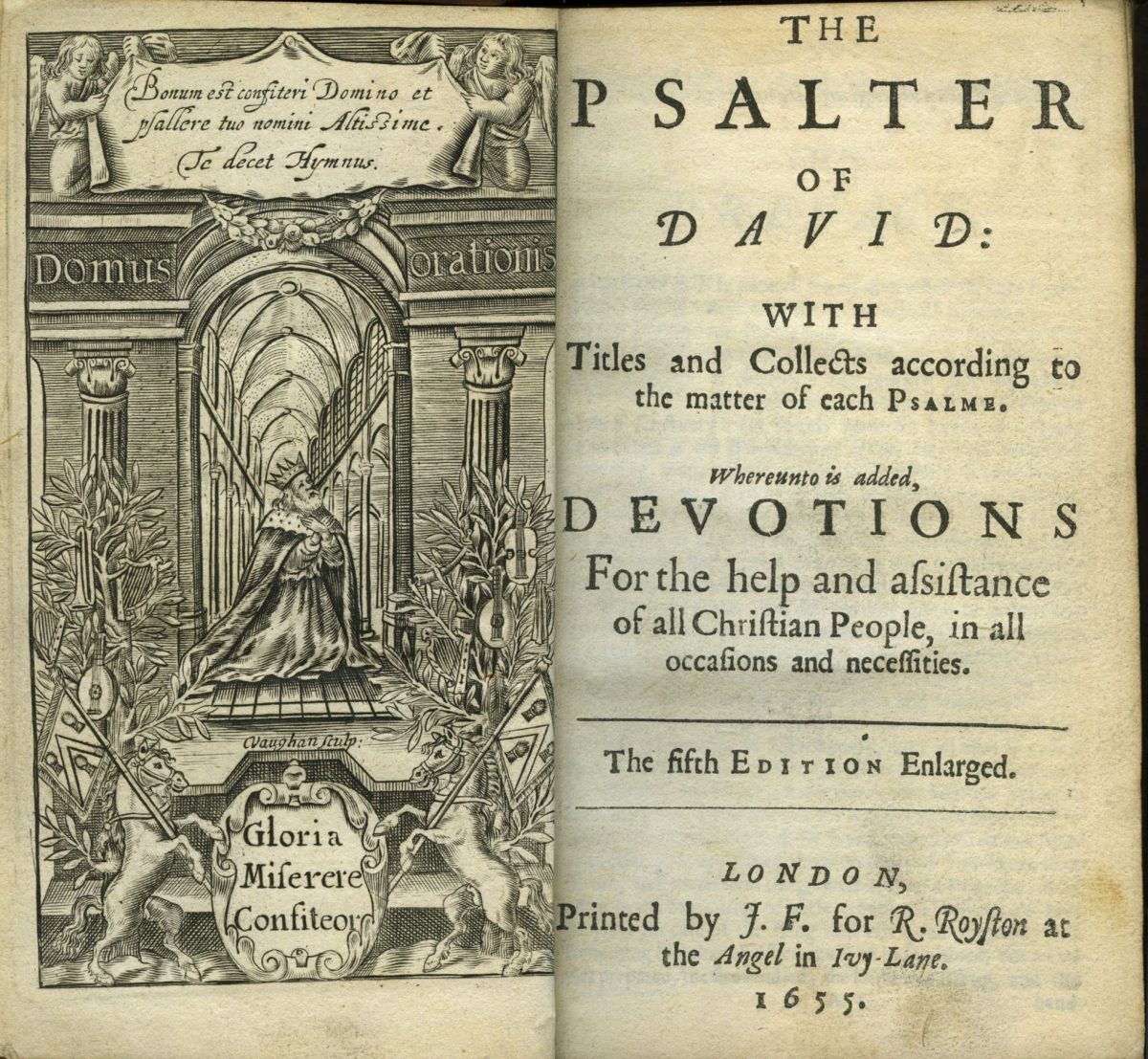
“Praying the Psalms” is an introductory chapter that comes from Angelus Press books: Divine Office, Vespers and Compline, available from the Virgo Sacrata shop. Parallel Latin-English Psalter (free!) is also available on the Virgo Sacrata where you can listen and learn how to pray the Psalms in Latin language. It is a wonderful opportunity for the Catholic Clergy, Religious and Laity to learn the Divine Office — or the Liturgy of the Hours — in Latin as well as the more familiar English.
But how are the psalms to be prayed? It will be interesting to examine the history of psalmody, and see how the psalms were prayed and understood from the beginning. In the first centuries of the Church the psalms were actually the only expression of the Christian’s personal prayer life. From these times stems the practice of praying all 150 psalms every week. It seems incredible to us today when we hear that at the time of St. Jerome (✞ 420) farmers used to pray the psalms from memory while they plowed their fields, workmen sang them in their shops, and women prayed them while engaged in their home duties. It is no wonder that children learned them early on, and that memorization of the psalms was necessary for ordination to the priesthood or entrance into the convent. The psalms had passed over into the flesh and blood of every member of the Church, and were not just an obligation for priests.
Nor did the people of those ages merely pray the psalms in a mechanical way. They lived their psalms. This we know from the many homilies on the psalms that were the Sunday sermons of the saints of antiquity: Origen, Eusebius, Gregory of Nyssa, Hilary, Chrysostom, Ambrose, and Augustine.
It is obvious to us that the laity to whom they preached had great familiarity with the psalms. After the passing of the great Church Fathers (5th century), the praying and understanding of the psalms fell sharply. But the Church continued to maintain that Her official prayer life must be made up principally of the psalms.
But how we are to take a prayer-form that stems from an entirely different frame of thought, the Old Testament, and make it into the expression of our own interior life? The psalms, as already remarked, contain the whole range of prayer sentiments, and we can use them for our own prayers if we observe two simple conditions:
- We must lift them above the concrete historical situation of their composition and see in them a universally valid message which is of importance to us personally. That means lifting them above their reference to Israelite history or some particular crisis of olden times and applying them to the story of our own life, to the many crises in the Catholic Church Herself of which we are aware, and to our relations with God and our neighbor.
- We must read the psalms in the the context of our Catholic Faith. Generally speaking, this is not difficult. The Old Testament never contradicts New Testament truths, and the very same Holy Ghost Who inspired the psalms speaks in these songs and prays in our hearts today. This is a basic rule: analyze the literal historical message as accurately as possible and where feasible or necessary identify a Catholic parallel. Dwell meditatively upon rich discoveries cued by words such as life, victory, grace, love, trust, judgment, and reward, which lend themselves easily to the Catholic frame of reference.
Do not be scandalized at the proportionately large number of petition, lamentation; suffering and curse psalms. Though it may appear that there is nothing for us to build on here, it is correct to go beyond the immediate historical and personal limits of these psalms and see in them images of the mighty struggle between hell and God’s kingdom, between Satan and the Church at large or in an individual soul. The battle involving hell and God or God’s kingdom continues through time, and in every age the Church in her breviary has prayed the three final petitions of the Our Father: forgive us our trespasses, lead us not into temptation, deliver us from evil. It is of primary importance not to forget that we are praying in the name of the Church.
The so-called “curse psalms” do not present special difficulties if we consider the classic psalm literature in which petitions and lamentations are often clad in the natural and somewhat primitive form of a curse. Natural man, after all, is quite accustomed to expressing his displeasure at evil in precisely this form. As Christians we may never wish evil upon a sinner directly and personally, but these. psalms have nothing to do with personal enmities.
The theme of all our praying is God’s kingdom and sin, and the curse passages in the psalms are expressions of absolute protest against evil, sin and hell. Try changing the curses into an expression of divine justice and you pronounce them no longer with your own mouth, but with the mouth of Christ and the Church. The curse thus resembles the woes that our Lord addressed against the Pharisees. There is something really quite stirring and grand about these curses. The all-just God steps before us as we pray and warns us of the punishments of hell.
Most of the psalms are what we might call “prayer figures.” The key to understanding any figure comes from grasping the point of comparison employed. In this edition, a summary “prayer figure” is included at the head of each psalm to help formulate concretely the comparison. When we have found it, we will have an idea of what is to be carried over into our application of the prayer. Perhaps not all the text will match this idea, but do not let this be frustrating. Just as in a parable not every feature of the story or detail is capable of application to the point made by the narrative, even so, not every verse or statement in a psalm can be applied to its basic message. After all, the psalms are poetry.
Do not be untruthful in praying the psalms. If we plead, then we must have something adequate for which to plead. When we beg for protection in persecution, but in reality are safe and secure, our pleading is hardly genuine. What we say in a psalm must represent a real need on our part, either in our own soul or in Holy Mother Church at large. Otherwise’ the words are like “sounding brass or a tinkling cymbal.” For these reasons the Prayer Before the Divine Office is included so that we pray in union with the Divine intention itself. This need is always present, provided we make an effort to bring it to mind. It is present, if not in our own soul, then surely in the Church at large.
It is our task, and a richly rewarding one, to restore the Psalter to its place of honor in Catholic prayer. The Psalter is a sacred heritage, the treasury of the Catholic Church’s finest prayers, and it is lying open for us if we but take it and make it our own.

-
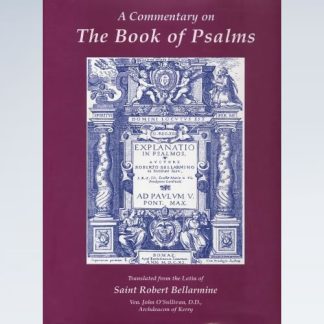 Commentary on the Book of PsalmsUS$ 64.00
Commentary on the Book of PsalmsUS$ 64.00 -
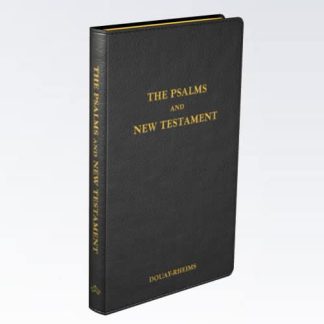 Psalms and New Testament (Douay Rheims)US$ 35.00
Psalms and New Testament (Douay Rheims)US$ 35.00 -
 Divine Office (In Latin and English)US$ 49.00
Divine Office (In Latin and English)US$ 49.00 -
 The Haydock Bible with Commentary (The Douay-Rheims Old and New Testament)US$ 150.00
The Haydock Bible with Commentary (The Douay-Rheims Old and New Testament)US$ 150.00 -
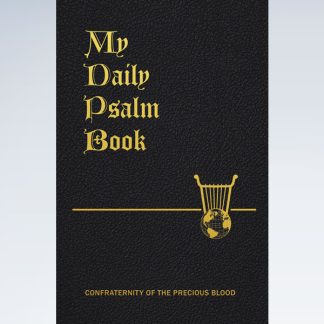 My Daily Psalm Book: The Perfect Prayer BookUS$ 15.00
My Daily Psalm Book: The Perfect Prayer BookUS$ 15.00 -
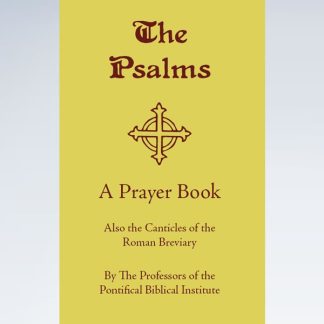 The Psalms – A Prayer Book – Also Canticles of the Roman BreviaryUS$ 27.00
The Psalms – A Prayer Book – Also Canticles of the Roman BreviaryUS$ 27.00
VIRGÓ SACRÁTA is a Christian mission-driven online resource and shop inspired from the beauty of Catholic faith, tradition, and arts. Our mission is to “Restore All Things to Christ!”, in continuing the legacy of Pope St. Pius X under the patronage of the Blessed Virgin Mary. “Who is she that cometh forth as the morning rising, fair as the moon, bright as the sun, terrible as an army set in battle array?” O Mary, conceived without sin, pray for us who have recourse to Thee.


